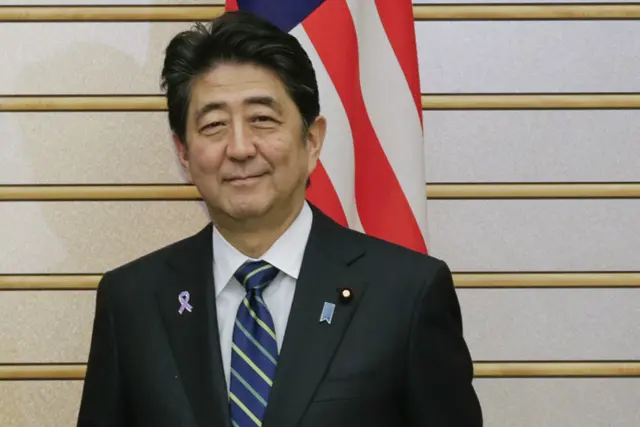Japan's Commission on the Constitution under the House of Councillors restarted itssubstantive discussion on a constitutional amendment on November 16 after a nine-month hiatus. It is the first formal multi-party discussion of its kind after the LiberalDemocratic Party (LDP) and its allies secured a supermajority in the election of the Houseof Councillors this July.
Despite the disagreement of opposition parties, the ambitious LDP, whose membersdominate the current government, have maintained their efforts to amend Japan’s pacifistconstitution.
Shinzo Abe’s government has further stoked the flames by pushing new security laws thathave been accused of violating the country’s constitution. In a "Keen Sword" military drillstaged this month by Japanese and US forces, the two countries have for the first time puton joint exercises related to the new security laws.
In addition, the Japanese government also approved a plan for its troops to conduct rescuemissions in South Sudan on UN peacekeeping operations. Such actions have arousedstrong opposition across the country, while the new security laws have been characterizedas paving the way to war.
"Japanese people forever renounce war as a sovereign right of the nation and the threat oruse of force as means of settling international disputes." This historic renunciation of warin the pacifist constitution is what the Abe government has long been trying to abolishsince he took office.
If constitutional change is a move taken by Abe in the public sphere, then the attempts toenact the new security laws are brazen violations of Japan’s pacifist pledge. Since the lawsallow the country to fully exercise its right to collective defense, it's just a matter of timebefore Japan's Self-Defense Forces (SDF) engage in aggressive military action, whichdirectly violates its pacifist constitution.
However, the Japanese government, infamous for saying one thing and doing another,holds greater ambitions. The true intention of the conservative Abe government is tolegalize its engagement in wars.
To advance its underhanded agenda, it has carried out a series of actions both domesticallyand internationally. It rejected and amended the domestic and diplomatic policies adoptedby successive cabinets, overturned its introspection and repentance over aggression inWorld War II, fomented tensions over the Diaoyu Islands and South China Sea, made“new allies” and drove a wedge between China and its neighbors.
The world has expressed severe concerns over these actions that may lead Japan off thepath of peaceful development.
Since Japan passed the new security bills last September, more than 300 protests havetaken place across the country, calling for the government to abolish the new laws. Inaddition, many Japanese citizens have filed lawsuits against the Japanese government forits violation of the constitution and the mental torment caused by the possibility of futurewars or terrorist attacks.
These voices have criticized the endorsement of the new security bills as a savage act,described the amendment of the constitution as a regression of history, and voiced theiropposition to sending their children to battle.
Just recently, US magazine Foreign Policy remarked, “Abe did pass the legislation butnever managed to dispel public concerns … that sometime, somewhere at Washington’sbehest, Tokyo will get dragged into a conflict that has nothing to do with the defense ofJapan.”
The debate over the constitutional amendment will surely bring chaos to Japanese society,but the victims will not be limited to the Japanese people. The new security laws allowJapanese troops to operate across the world, provide military support to its allies, andstrike first in a military capacity, thus further destabilizing the Asia-Pacific region.
Japan is trying to shake off the final restraint on its diplomatic, military and overseasactions through its constitutional amendment, new security laws and abolishment of itsrenunciation of war, so as to escape its post-war pacifist system. The internationalcommunity should stay alert to such actions.
Hitoshi Ashida, former chairman of Japan's Committee on the Bill for Revision of theImperial Constitution, said 70 years ago that the renunciation of war is the common desireof the people who suffered from the war that caused hundreds of thousands of casualties,comparing it to a broad path to world peace.
Though seven decades have passed, the significance of the pacifist constitution should notbe undermined or forgotten. It serves as an assurance of peace to the Japanese people andthe countries once invaded by Japan, as well as a crucial step to eliminating a potentialthreat to the peace of East Asia.
It is the responsibility and mission of every member of the international community tosafeguard and play a constructive role in regional and world peace. Only by drawinglessons from history, adhering to a peaceful development trajectory, treading cautiouslywhen it comes to military action and boosting mutual trust with neighbors, can Japanreturn to the right path.
Though Japanese citizens know this well, a handful of extreme and stubborn right-wingpoliticians are leading Japan astray by walking down the old path of expansionism.
(PEOPLE'S DAILY ONLINE)
 简体中文
简体中文

